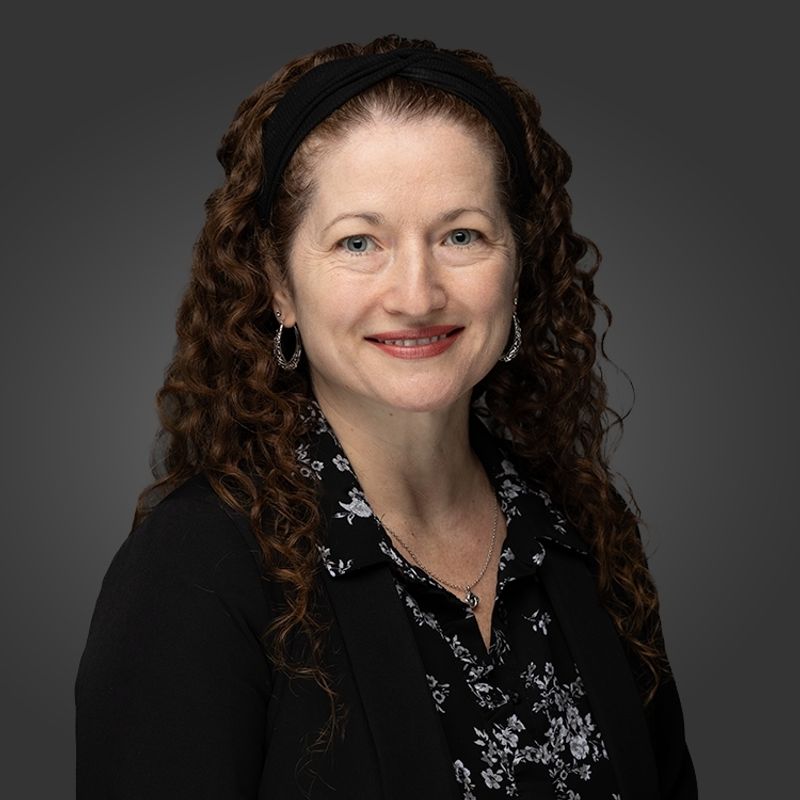
Marianne McClain, MS, PsyD
Adult Neuropsychology, Behavioral Health, Memory Clinic
Practices In:
Quincy
Patients Seen:
Ages 18+
My approach to care is person-centered; each patient is a unique individual who deserves a provider who will take the time to learn about their specific needs and offer supports to meet those individual needs. As a neuropsychologist, my focus is on understanding brain-behavior relationships. So in other words, examining the intersection between what’s going on in the brain and the way we think, feel, and act in a way that is meaningful for the people involved. For individuals who have a condition that impacts their thinking, or who may have had an injury to their brain, like a concussion or a stroke, a neuropsychological evaluation can help determine prognosis, monitor progress in recovery, and/or identify targeted areas to focus on in treatment moving forward. For older individuals who are starting to notice changes in their thinking (e.g., difficulty remembering information day-to-day or navigating familiar places), but are uncertain whether these are normal changes associated with healthy aging, an evaluation such as this can help to clarify diagnosis. The aspect of this work that inspires me the most is the ability to look at the person as a whole, all of the different components that impact what is happening with their mood, behavior, or changes in thinking to really understand how these pieces interact and fit together to shed light on what might be going on. This includes not just a focus on where individuals struggle, but also striving to understand what works, areas where they are doing well, so we can help access those strengths to ensure that treatment is as successful as possible. Overall, my goal is to identify targeted areas to guide effective treatment, provide resources to support individuals and their family, and assist in optimizing overall functioning and quality of life.
Board Certifications
Doctor of Psychology
Professional Certifications
Licensed Clinical Psychologist
Languages
English
Clinical Interests
Adult/geriatric neuropsychology, Healthy aging vs dementia, Cognitive disorders, and Neurodevelopmental disorders in adults
Personal Interests
Outside of work, I enjoy spending time with my husband and our two aussies. I love variety in life, and strive for a healthy balance between being active (jogging, exercising, hiking, golfing, or other outdoor activities) and being still (cozying up with a good book, practicing mindfulness, sitting by the fire, etc.).
Memberships
American Psychological Association
Association for Psychological Science
National Academy of Neuropsychology
https://youtu.be/AWcJamX4RIw?enablejsapi=1
School
Rutgers The State University of New Jersey
Graduation Date:
2002
Degree:
BS, Psychology
Fairleigh Dickerson University
Graduation Date:
2005
Degree:
MS, Counseling Psychology
La Salle University
Graduation Date:
2015
Degree:
MS, Clinical Psychology
La Salle University
Graduation Date:
2017
Degree:
PsyD, Clinical Psychology
Fellowships
University of Missouri School of Health Professions
Post-Doctoral, Adult Neuropsychology
Provider’s Publications
Mindful Awareness Related to Working Memory Capacity and Response Inhibition
(2021)
Expanding Care: Workshop Outcomes to Enhance Behavioral Healthcare for Rural Patients with Chronic Respiratory Conditions
(2018, Oct)
Mindful Awareness Related to Working Memory Capacity and Response Inhibition. Poster presented at the annual conference of the Association for Psychological Science (APS), San Francisco, CA.
(2018, May)
The woman solution: A history of women emerging in the field of American psychology. The Histories, 3(1).
(2016)
Single Word Reading as a Test of Premorbid Functioning in Chronic Severe Acquired Brain Injury.
(2016, Oct)
Ecological Validity of the NAB Screening Module in a Post-Acute Rehabilitation Setting
(2016, Oct)
Does a Total Mindfulness Score Equal the Sum of its Parts?
(2016, Oct)
Social problem solving styles moderate depression and quality of life in individuals with co-occurring brain injury and dysphagia.
(2016, Feb)
Looking at self-criticism as a mediator between mindfulness and anger. Poster session presented at the annual convention of the Association for Behavioral and Cognitive Therapies (ABCT)
(2014, Nov)
Dueling conversations: Examining roles for self-criticism and self-reassurance in shame. Poster session presented at the annual convention of the Association for Behavioral and Cognitive Therapies
(2014, Nov)
Procedures
Capacity Assessments, Neuropsychological Assessments, Pre/Post-Surgical Neuropsychological Evaluation
Conditions
Acquired Brain Injuries, Adult ADHD/Learning Disorders, Autoimmune & Demyelinating Diseases, Brain Tumors, Causes of Dementia & Memory Changes, Cerebrovascular Disease, Concussion, Dementia, Epilepsy & Seizures, Mild Cognitive Impairment, Movement Disorders, Neurodegenerative Conditions, Parkinson's Disease, Stroke, Traumatic Brain Injuries

